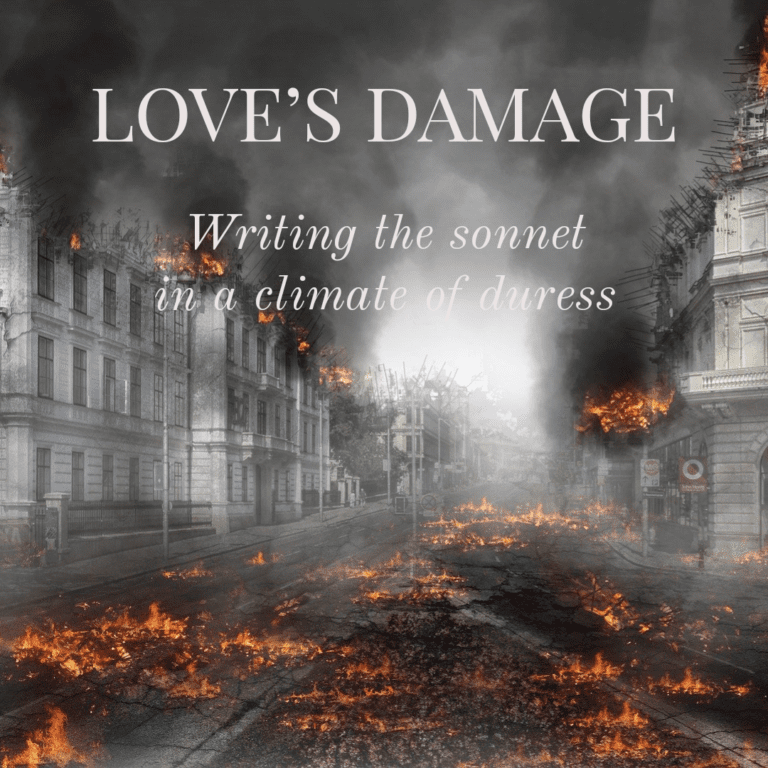
Registration is closed.
$225.00
Share this class
If the sonnet begins historically as a love poem — and it does — one must take into account Anne Carson’s forceful assessment of desire: “eros,” she argues, “moves out from the lover toward the beloved, then ricochets back to the lover himself and the hole in him, unnoticed before.” The object of such poems is, then, always an absent one — shadowy, elusive, irresolute; defined more by the lover searching than by the sought beloved. As Juliana Spahr observes, responding to Carson, “It is this hole caused by love’s damage that tells the most about the sonnet, as about the lyric in general.” This course, which hybridizes elements of the writing workshop and the literary seminar, points to the fraught nature of desire as evidence not only of the sonnet’s durability but of its capacity to address conflicts seemingly much larger than the form itself. But the sonnet is also a courtly form, forged in a climate of significant political pressure, and its adaptability to evolving circumstances — not least of them, anthropogenic climate change — demonstrates its ability to capture, think through, or otherwise record “duress” of various kinds. Turning first to early sonnets by Petrarch, Wyatt, Surrey, and Shakespeare, and subsequently to contemporary sonnets by Wanda Coleman, Bernadette Mayer, Dianne Seuss, Brian Teare, and others, we will assess the sonnet’s capacity to respond to crises of various kinds — and, along the way, write and workshop sonnets of our own. Class meetings will comprise discussion of distributed readings, exploration of writing prompts, and (after the first class) workshop of participants’ poems. My hope is that these writings and investigations can promote a broader understanding of the sonnet form, small as it is, as a response to — if not an antidote for — the myriad problems posed by our own moment of environmental calamity.
John James is the author of The Milk Hours, selected by Henri Cole for the Max Ritvo Poetry Prize (Milkweed, 2019). He is also the author of Chthonic, winner of the 2014 CutBank Chapbook Award. His poems appear in Boston Review, Kenyon Review, Gulf Coast, PEN America, Best American Poetry, and elsewhere. A digital collagist, his image-text experiments appear in Quarterly West, The Adroit Journal, and LIT.

Virtual classes are usually based on video conferencing. At the moment we use Zoom. Instructors may utilize email as well as the specific ‘class page’ to share materials.
Class pages are accessible to students through their account page. CLICK HERE to visit your account.
Each class is different, and Ruth Stone House allows a wide degree of freedom to instructors as to how they run their classes. If you miss a class or have technical problems you can request a video link to the class you missed.
Technical requirements:
In order to attend a Zoom based class, make sure you meet these technical requirements: Click here
We also require that you have access to email service to use Ruth Stone House Classroom.
Have more questions? CONTACT US.
FInancial aid is applied for on a class by class basis. Not all classes offer financial aid. There is a limited amount of funding available, and aid is awarded in the order received.
This financial aid form is for:
